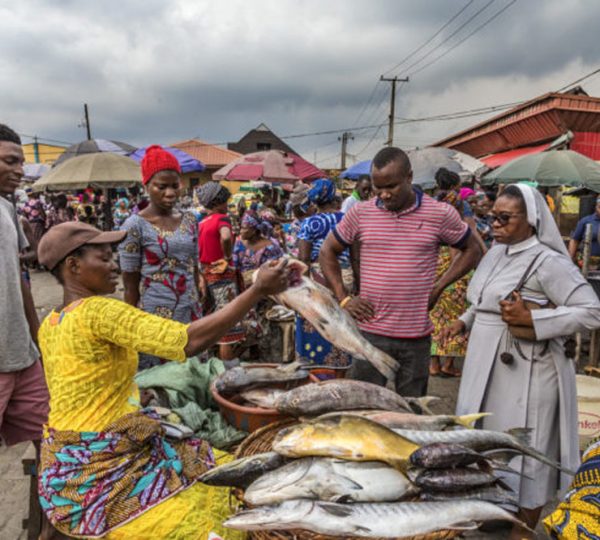Nigerian Consumer Pulse Study – August 2024

As Nigeria grapples with rising living costs and economic instability, the findings from our Nigerian Consumer Pulse Survey (August 2024) paint a concerning picture for consumers. The Happiness Index has plummeted to 47%, reflecting the mounting pressures from increased petrol prices and persistent inflation. This significant decline in consumer sentiment is not merely a statistic; it represents real people navigating a complex financial landscape, and it has profound implications for brands across various sectors.
The Economic Pinch: What Are Consumers Facing?
In this challenging environment, 58% of Nigerians report a worsening financial situation over the past six months, while only 21% have experienced any improvement in their household incomes. This stark reality highlights the struggles many face, from rising prices for basic goods to increasing anxiety about future financial stability.
The effects of inflation and rising living costs are pervasive. As the cost of essential goods continues to rise, consumers are forced to reevaluate their spending habits. This shift is particularly evident in discretionary categories, where many consumers are prioritizing needs over wants. Understanding this dynamic is critical for brands aiming to connect with today’s consumers.

58% of Nigerians report a worsening financial situation over the past six months, while only 21% have experienced any improvement in their household incomes.
Sector-Specific Impacts
1. Food and Beverage
The food and beverage sector has felt the brunt of rising costs. With increased production and transport expenses, brands are forced to either absorb costs or pass them onto consumers, both of which can impact sales. The Nigerian Consumer Pulse Survey indicates that health-conscious choices are rising, with consumers gravitating toward affordable, nutritious options. Brands offering budget-friendly, value-driven products are likely to resonate with cost-conscious shoppers.
Moreover, the trend toward healthier eating continues to gain momentum, driven by greater consumer awareness of nutrition and wellness. This shift presents an opportunity for brands to innovate with affordable, health-focused offerings that meet the evolving demands of consumers.
2. Financial Services
In the financial services sector, the current economic climate has spurred consumers to become more vigilant about managing their finances. Many are seeking better banking products that offer value, such as low-fee accounts, competitive interest rates, and rewards programs. As disposable incomes shrink, brands in this space must communicate the value and security of their offerings more effectively.
Moreover, there’s an increasing demand for financial literacy programs, as consumers desire to make informed decisions regarding savings, investments, and credit management. Financial institutions that prioritize transparency and education can build trust and foster long-term loyalty among consumers facing financial uncertainty.
3. Beauty
The beauty industry is not immune to the economic challenges. Many consumers are cutting back on luxury beauty products, opting instead for affordable alternatives or focusing on essential items. Brands that can offer high-quality, budget-friendly options while maintaining strong brand messaging will likely find success in this environment.
Additionally, there is a rising trend in natural and organic beauty products, reflecting a broader consumer shift toward wellness. Brands that emphasize sustainability, ethical sourcing, and health benefits can appeal to the growing number of conscious consumers looking for beauty products that align with their values.
Implications for Brands: Strategies to Adapt
In light of these challenges, brands need to navigate this tough economic climate thoughtfully. Here are three key strategies to consider:
- Build Trust to Win Loyalty:
In difficult times, trust becomes the cornerstone of consumer decision-making. Brands that demonstrate credibility and empathy can forge deeper connections with consumers. As purchasing power diminishes, consumers are likely to remain loyal to brands they trust. - Be Where Consumers Are:
Distribution is paramount. Whether through e-commerce, social commerce, or brick-and-mortar retail, brands must ensure they are accessible. Investing in last-mile delivery solutions can enhance visibility and convenience, making it easier for consumers to access your products. - Tiered Pricing and Product Formats:
With disposable incomes shrinking, offering flexible pricing strategies is essential. Brands should consider tiered pricing models, affordable SKUs, and various product formats to cater to diverse consumer needs. Providing value doesn’t only mean reducing prices; it also involves offering smart, accessible options that align with consumers’ shifting demands.
In summary, trust, availability, and affordability are crucial pillars for brands seeking to survive and thrive amid current economic challenges. Those who adapt swiftly to the financial realities of their consumers will not only maintain their market position but also emerge stronger when conditions improve.
To delve deeper into the evolving consumer landscape and discover actionable insights that can help your brand navigate these challenges, download our full CPS report for August 2024 via the link.
About Pierrine Consulting
Pierrine Consulting is at the forefront of market research and consumer insights in Africa, empowering brands to navigate complex economic landscapes. Our latest Nigerian Consumer Pulse Survey (August 2024) highlights the deep challenges Nigerians face as rising living costs and economic instability take hold. The Happiness Index has dropped to a concerning 47%, a reflection of the significant pressure consumers face from escalating petrol prices and persistent inflation. These findings underscore the importance of agile, data-driven strategies for brands operating in the region.
At Pierrine Consulting, we specialize in market research data collection, insights, and analysis, ensuring that businesses stay attuned to the shifting dynamics in key African markets like Nigeria, Ghana, Kenya, and South Africa. Our expertise in qualitative and quantitative research services enables us to provide actionable insights that help brands understand the financial constraints and changing priorities of consumers during these trying times. Through our market segmentation research, we help brands identify and target the most relevant consumer groups, offering a nuanced understanding of how economic factors are shaping consumer behavior in Nigeria and across Africa. Our deep understanding of the region’s consumers allows businesses to tailor their messaging and product offerings to meet the evolving needs of their audiences.
In addition to market segmentation, Pierrine Consulting’s development studies and social research provide insights into broader social issues and economic challenges, helping businesses, NGOs, and governments adapt to the changing landscape. Our secondary research services complement our primary data collection, ensuring that our clients receive a comprehensive view of market conditions in Nigeria, Ghana, Kenya, and South Africa.
As the leading market research agency in Africa, Pierrine Consulting is committed to helping brands thrive by delivering qualitative and quantitative research that not only captures current sentiment but also anticipates future consumer trends. With a focus on industries such as beauty, food and beverage, finance, and social research, we offer tailored solutions that drive success in challenging economic environments.
By working with Pierrine Consulting, brands can unlock vital insights that guide effective strategies, ensuring resilience and growth in the face of economic challenges.
Ready to invent the future?
Our teams possess extensive in-market experience that drives measurable growth for brands. Please reach out to us to learn more.
